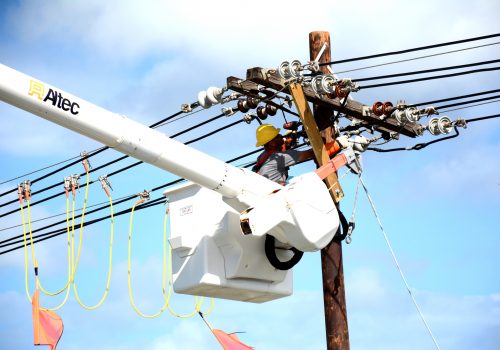Puerto Rico chooses concession: Two strikes to date
This piece is the second by the author on Puerto Rico’s electricity system. You can read the first piece here.
The government of Puerto Rico has selected “concession” as the method of privatizing the transmission and distribution assets of the commonwealth’s electric system, Puerto Rico Electric Power Authority (PREPA). This privatization through “concession” of transmission and distribution functions will accompany the parallel sale of PREPA’s electric generation assets and the introduction of a new regulatory administration that the Public Service Regulatory Board established in August. However, the direct regulation of electricity is assigned to a new subsidiary Energy Bureau, with five new commissioners.
Puerto Rico’s choice of a concession arrangement for the transmission and distribution sector of its electric utility is unusual in the United States and Europe. The concession model has not been used in the US electricity system, but has been used in about ninety-one out of 4,000 publicly owned water or wastewater systems. In Europe, concession operation of water and sewerage utilities is common in France.
Concession for electric transmission and distribution has been used in developing countries and the World Bank’s Energy Sector Management Assistance Program (ESMAP) has conducted case studies of the effectiveness of concessions in Brazil, Peru, the Philippines, and Turkey. Conclusions included observations about the benefits concession when there is “transparency and predictability of the regulatory process,” noting that “investors are attracted when they are protected from risks beyond their control.”
At this point, it is not clear which concession model Puerto Rico will select. The options range from management service contracts, to lease-and-operate “affermage” contracts, to concession “stricto sensu.” The US Agency for International Development (USAID) defines “management contracts” as those where the private entity takes management responsibility, has limited operational and commercial control, and makes no private investment. Under the “affermage” or lease contract concession, the lessee is responsible for operational and commercial functions and receives a fixed fee for services provided, but the government provides new fixed capital investment. The full concession, called “stricto sensu,” grants the lessee full management and commercial control plus responsibility for making all the new fixed investment required.
Under all of these scenarios, one thing is constant: the need for a clear and stable regulatory framework before the concession is granted. Former Ohio Public Utility Commission Chairman Ashley Brown summed up the typical situation in a paper on Brazilian experience with concessions:
“No prudent company, publicly or privately owned, will want to put capital at risk unless they have a fairly clear idea of the rules under which they will be operating including such critical issues as how they will be compensated for their services, how their performance would be evaluated, what risks they have to assume, the opportunity to recover their investment, the scope of activities they are required to carry out, and what powers they will have to meet their obligations.”
Further, while a solid regulatory framework is required, strong political support is also needed to enforce existing law and the regulators decisions. This point is well documented by failures observed in the unsuccessful electric utility privatizations in such countries as Albania, Argentina, and Georgia.
Writing on experiences with power privatizations in Africa, international attorneys Kevin Atkins and Ikenna Emehelu write, “there must be a strong political commitment to privatization. Privatizing an entire power sector and putting in place an investment climate that is suitably attractive to international investors will not happen overnight and requires a long-term commitment”
Critics of Puerto Rico’s privation plans point to two failed management contracts awarded by the government for operation of the Puerto Rico Aqueduct and Sewer Authority (PRASA) in the 1990s. Both privatizations, one in 1995 with the French operator Veolia and the other in 2002 with Suez subsidiary Ondeo, ended in early terminations of the contracts due to disputes between the government and operators.
Whether the political authorities in Puerto Rico can now, and for the foreseeable future, muster the strength to support decisions in support of a new electricity transmission and distribution concession contract is an open question. It is unclear what role, if any, the new regulatory scheme will give the Energy Bureau under the concession contract. The fact that a new regulatory system, with untested staff, abilities, and rules, will be in charge is not a favorable condition for successful regulation of the partially privatized electric sector.
Nonetheless, there is ample international and US experience with restructuring, privatization, and regulation to provide significant guidance and reduce risk of an unsuccessful concession outcome. However, that guidance must be sought out and the lessons learned must be applied.
Branko Terzic is a senior fellow with the Atlantic Council Global Energy Center. You can follow him on Twitter @BrankoDuTerzic
Related content
Image: San Juan, Puerto Rico (photo by: Breezy Baldwin).
